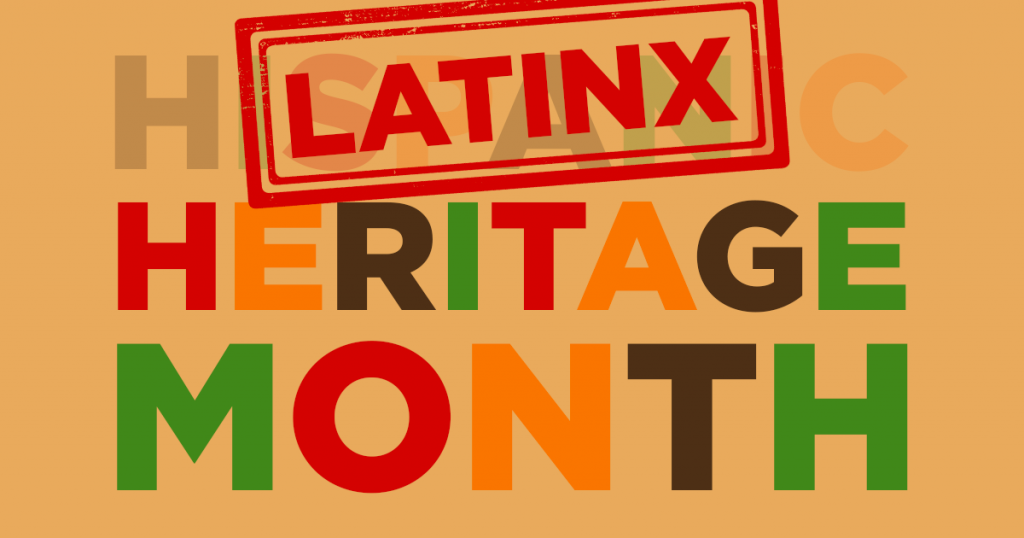Today we begin the recognition of National Latinx Heritage Month, which is traditionally held from September 15-October 15. Latinx Heritage Month honors the history, culture, and contributions of Americans whose ancestry may intersect with 20 countries in Latin America, including México, Central, and South America, and the Caribbean.
We Americans have yet to really learn our own ancestry. Thus far, impressed by New England writers and schoolmasters, we tacitly abandon ourselves to the notion that our United States have been fashioned from the British Islands only … which is a very great mistake. ~ Walt Whitman, 1883
The Latino past is as important to United States history, and as rich, as that of any group in U.S. society. As historian Vicki Ruíz has noted, “From carving out a community in St. Augustine in 1565 to reflecting on colonialism and liberty during the 1890s to fighting for civil rights through the courts in the 1940s, Spanish-speaking peoples made history within and beyond national borders.” Relevant scholarship on these and other topics has exploded since the 1980s, mirroring the demographic growth of the Latino population – which now stands at some 50 million U.S. residents – with important histories about Mexican Americans, Puerto Ricans, Dominicans, Central Americans, Cuban Americans, and South Americans published every year. As those books and articles demonstrate, no brief summary can distill the diversity of this Latino population; the many ways in which these groups have shaped national institutions.
From the arrival of the Spanish in the 15th century into the early 21st century, Latinos have built missions and presidios; developed ranching, agricultural, and high-tech industries; written poetry, novels, and songs; preached on street corners and from pulpits; raised families; built businesses and labor unions; and supported politicians and critical national and international initiatives. Some trace their residency to Spanish-speaking or indigenous forebears who arrived in New Mexico or elsewhere prior to the establishment of the U.S. Others arrived more recently as immigrants or refugees in the 19th, 20th, or 21st centuries. Deeply embedded in economic and political life across many decades, Latinos have played instrumental roles in the development of the U.S., and public recognition of the Latino past is long overdue.
The essays included in “American Latinos and the Making of the United States: A Theme Study” collectively demonstrate that Latinos have shaped U. S. courts, military, and educational institutions, the identification and treatment of disease, and much more. They illustrate that Latinos’ impact has been felt in all regions of the U.S., from the Southeast to the Pacific Northwest, and from California to the Upper Midwest and New England, and that their visibility and involvement has increased exponentially in many of these areas over the last 50 years. They trace how the integration of hemispheric economies, the development of trade and movement of working people, the investment of U.S. businesses in Latin America, the economic demands of U.S. employers, and instances of political conflict and violence in the hemisphere have shaped Latino demographic growth and influenced communities already resident in the U.S. And they portray the daily struggles of everyday people alongside the achievements of influential residents, low-wage work experiences combined with prescient economic investments, encounters with segregation, and struggles to improve American democracy.
This introductory essay surveys this long and varied history through a focus on five individuals, many of them rarely remembered today, whose lives trace major historical developments from the early 19th century into the contemporary era. Ranging across historical periods, places of origin, and area of professional expertise, these figures embody themes discussed in detail in the accompanying essays, and they make the case that Latinos have played critical roles in the United States since the early 19th century. They include the Cuban priest Félix Varela, the Mexican author María Amparo Ruíz de Burton, the Puerto Rican bibliophile and collector Arturo Schomburg, the Guatemalan civil rights organizer Luisa Moreno, and the Mexican American politician Edward Roybal.
Photo of St. Augustine, Florida: sepavo / 123RF Stock Photo
